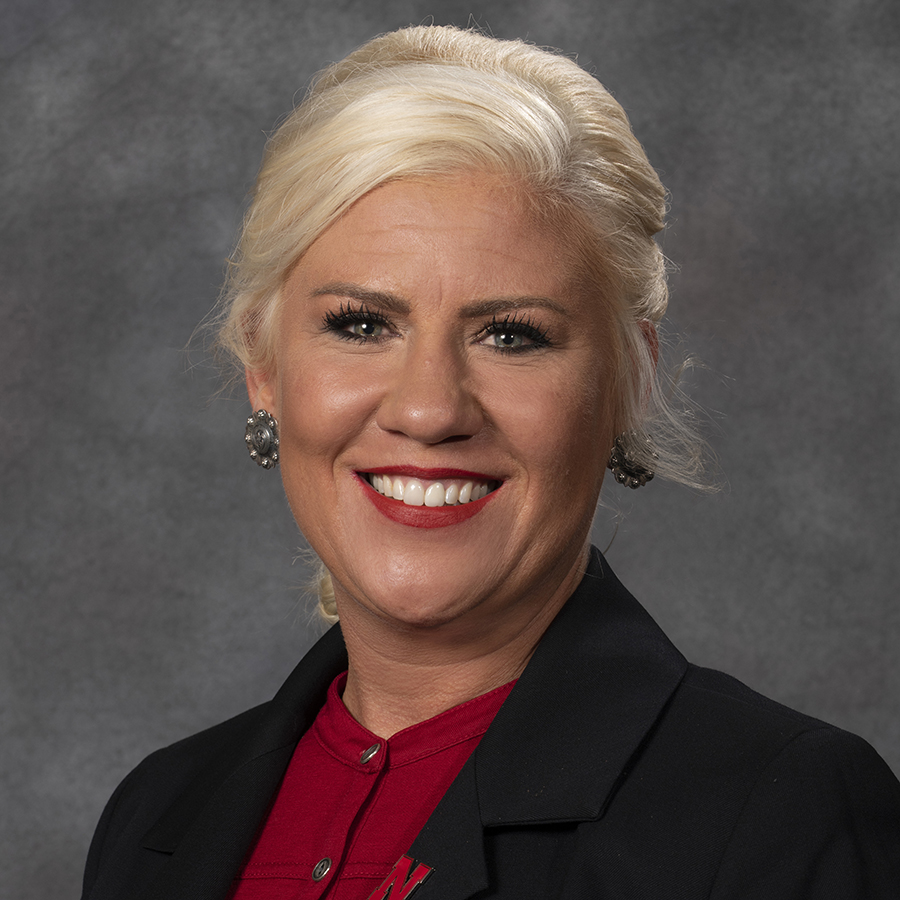
Dr. Ruth Woiwode
Dr. Woiwode is the Nebraska Animal Welfare Specialist, and in addition to outreach activities, she teaches animal welfare, and has an active animal welfare research program. She holds PAACO certifications for dairy, swine, poultry, meat plant and feedlot animal welfare auditing. Prior to joining UNL, Dr. Woiwode developed a nationally implemented animal care auditing program, and led a highly qualified team in auditing entire supply chains. Dr. Woiwode serves on the Animal Welfare Advisory Committee for the North American Meat Institute, the Animal Care Advisory Committee for the National Cattle Feeders Association, and the PAACO Feedlot Curriculum Development Committee; and the Nebraska Feedyard Safety Advisory Committee.
Contact Dr. Woiwode Google Scholar profileGraduate Students
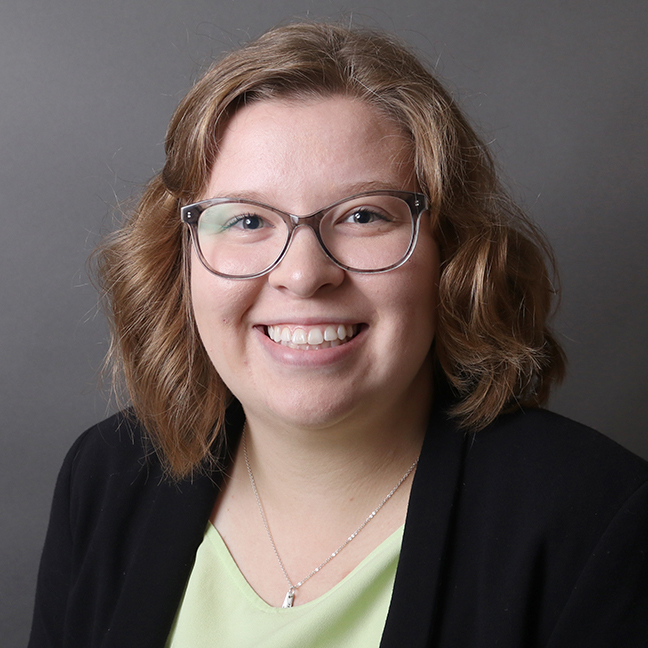
Karly Anderson, Graduate Research Assistant
B.S. Animal Science - University of Wisconsin-River Falls
M.S. Veterinary Medicine - University of Minnesota
Karly is a Ph.D. student and Graduate Research Assistant in the Department of Animal Science at University of Nebraska-Lincoln. Since 2019, Karly has been heavily involved with the development and implementation of animal welfare course content for undergraduate students. Karly’s ultimate goal is to apply science to guide management decisions and practices, improving the lives of animals and the people who care for them.
Contact Karly Google Scholar profile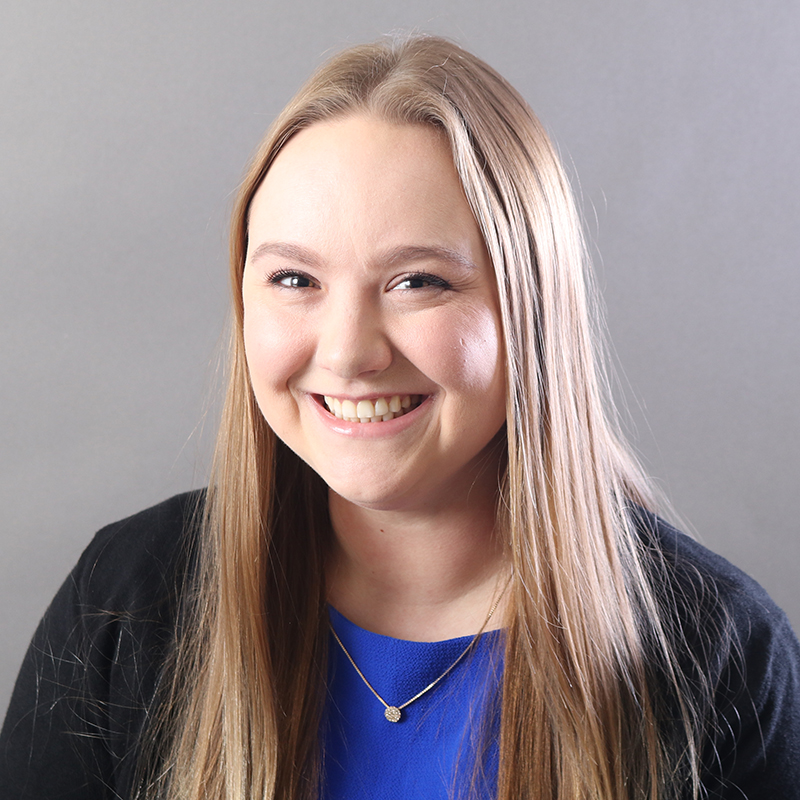
Morgan Marquardt, Graduate Research Assistant
B.S. Animal Science - University of Nebraska-Lincoln
Morgan is a M.S. student and Graduate Research Assistant in the Department of Animal Science at the University of Nebraska-Lincoln. Morgan has experience as a volunteer and as an intern with Nebraska Extension at both the county and state levels. She has contributed to the development of new curriculum and supported the growth of several programs related to animal care during her involvement with Nebraska 4-H. Morgan’s research focuses on the skill level of animal handlers and its impact on the human-animal relationship. She is passionate about improving human-animal interactions and supporting meaningful connections between animals and their caretakers.
Contact MorganOur Heritage
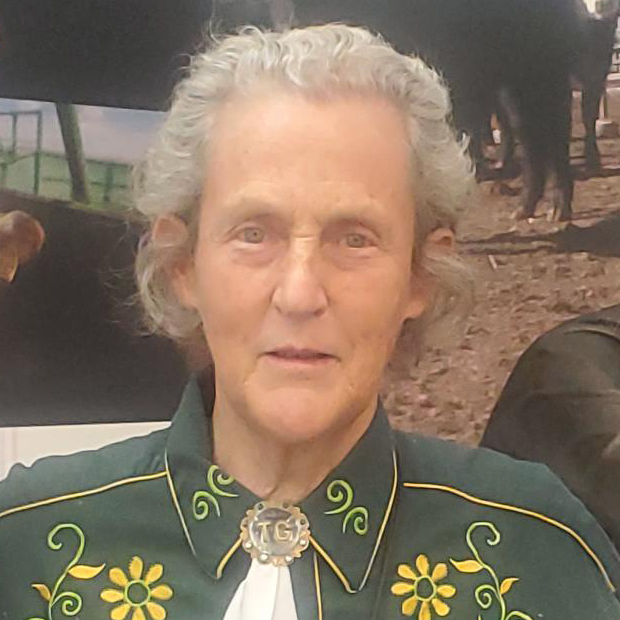
Dr. Temple Grandin
Dr. Temple Grandin is a Professor of Animal Science at Colorado State University, with a research and teaching role. She completed her B.A. in psychology at Franklin Pierce College, her M.S. in animal science at Arizona State University, and her Ph.D. in animal science at the University of Illinois. Dr. Grandin was named a Fellow of the American Association for the Advancement of Science in 2017 and inducted into the Women’s Hall of Fame in 2018.
Dr. Grandin is well known for her facility designs, implemented across all species and sectors of the livestock industry, and improvements to humane handling and stunning in slaughter establishments. The center track restrainer, found in many large cattle slaughter establishments was designed by Dr. Grandin. She also developed guidance on humane handling and stunning in slaughter establishments, which have been periodically updated and exist within the North American Meat Institute’s Animal ‘Recommended Animal Handling Guidelines and Audit Guide: A Systematic Approach to Animal Welfare’. Dr. Grandin attributes the greatest impact of her career to the implementation of the earlier version of this assessment by quick service restaurants in the establishments that supplied their beef and pork.
Dr. Grandin has authored many peer-reviewed scientific publications, written and edited over 20 books – both scientific and for the general population, and was the focus of a 2010 movie. In addition, Dr. Grandin has supervised numerous graduate students. In addition, many universities – including Texas A & M University, Dalhousie University, North Carolina State University, and Kansas State University – have recognized Dr. Grandin with honorary doctorate degrees throughout her career.
Temple's Website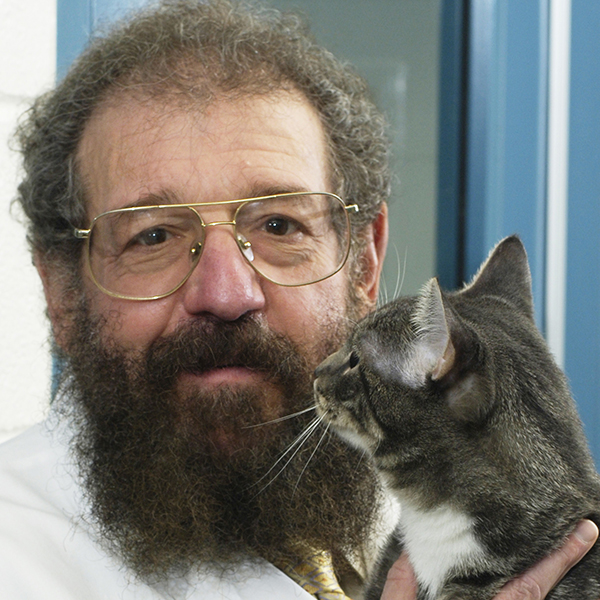
Dr. Bernard Rollin
Known as ‘the father of veterinary medical ethics’, Bernard Rollin, PhD, was an emeritus Distinguished Professor in the philosophy department at Colorado State University (CSU MarComm Staff, 2021). Dr. Rollin taught traditional and applied philosophy, animal sciences, and biomedical sciences. He combined these disciplines to create the first-ever course on veterinary medical ethics at Colorado State University (Guiden, M, 2016). He was awarded a Fullbright fellowship to study at the University of Edinburgh in 1964 during his undergraduate studies at City College of New York (Public Responsibility in Medicine and Research, 2014; Lory Student Center Events, 2022). Dr. Rollin earned a PhD of Philosophy in 1972 from Columbia University. He was an influential professor at Colorado State University for 51 years.
The profound notion of the moral obligation that humans have to the animals they care for was introduced into biomedical ethics by Dr. Rollin (Angus TV, 2011). He believed that animals are conscious beings and have a full range of emotions and, although not equal to humans, they should be treated with care and dignity. Dr. Rollin spoke about the ancient contract between the shepherd and their herd and acknowledged that stockmen take pride in treating their animals as part of their house in practising good stewardship (Angus TV, 2011). He composed amendments to the 1985 Animal Welfare Act which included the integration of an Institutional Animal Care and Use Committee and the three R’s, which fostered changes to the US federal laws concerning animals used for research (Johns Hopkins Center for a Liveable Future, 2011; National Agricultural Library, n.d.). He was sought to advise international governmental bodies and initiated changes within other organizations and corporations regarding the welfare of farm and experimental animals (The Animal Law Conference, n.d.). With having lectured over 1500 times in 28 countries, Dr. Rollin encouraged global societal change in the ethical treatment of animals (Guiden, M., 2016; Menus of Change, n.d.). He published over 20 books, including Animal Rights and Human Morality, Farm Animal Welfare, and the two-volume The Experimental Animal in Biomedical Research, as well as published hundreds of articles. The Public Responsibility in Medicine and Research awarded Dr. Rollin a Lifetime Achievement Award in 2016, the first bioethicist to ever receive the honour and the eighth individual to receive the honour in 15 years (Guiden, M, 2016).
Dr. Rollin’s empathy for animals and humans alike was evident in his life’s work. He lived a life dedicated to compassion and found teaching his many enlightened students ‘blissful’. In many ways, philosophically or not, Dr. Rollin used his voice to ‘fight for the things that can’t, and fight against the things that can (Colorado State University, 2016).’ Dr. Bernard (Bernie) Rollin passed in 2021 at the age of 78.